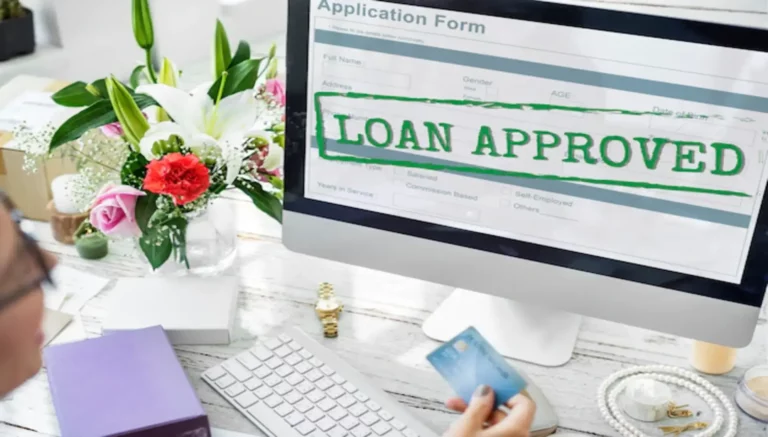
Moving to a new country can often lead to a sober realization of encountering significant levels of loan. However, there are several effective methods available to you for managing and minimizing the financial challenges you may face.
Managing debt requires a systematic approach rather than expecting it to disappear magically overnight. However, with effective loan management strategies, you can regain control of your financial situation. A crucial step towards achieving this is creating a comprehensive debt management plan, which serves as a roadmap for taking necessary actions.
Draft a plan for managing your loan
To begin, it is essential to compile a detailed list of all the loan you owe. This includes credit card balances, loans, mortgages, and any other outstanding financial obligations.
Next, gather all the relevant information about your financial situation. This includes income sources, expenses, savings, and investments. By gathering this data, you can gain a clearer understanding of your overall financial health.
The primary objective of a debt management action plan is to provide you with a complete and transparent picture of your finances, including the total amount of debt you owe. This assessment will help you identify the most effective strategies and establish a realistic timeline for repayment.
Obtain an overview of your financial situation
When managing your finances, it is essential to have a look at your financial picture. Break down your finances into major aspects. By examining each of the areas below, you can gain clarity about your financial health and effectively manage your loan.
- Identify Your Incomes: Begin by listing all sources of income you receive. This includes your salary, bonuses, investments, rental income, or any other financial inflows. Documenting your income will provide an overview of the funds available for debt repayment.
- Track Your Expenses: Make a full list of all your expenses. This includes your daily living expenses, such as rent, utilities, groceries, transportation, and healthcare. Additionally, include other financial obligations like insurance policies, mortgage or rent payments, loan installments, and any recurring subscriptions or memberships.
- Calculate Your Bills and Debts: Take an inventory of all your outstanding bills and debts. Your credit card balances, personal loans, student loans, medical bills, and any other financial obligations you have. Include details such as the amounts owed, interest rates, payment due dates, and the contact information of creditors.
- Evaluate Your Assets: Estimate the value of your assets. Consider your savings, investments, real estate properties, stocks, bonds, retirement accounts, and any other valuable assets you possess.
By diligently going through these steps, you will obtain a comprehensive overview of your financial situation. This knowledge will enable you to understand the extent of your debts and make decisions about managing them. With this information in hand, you can create an action plan that addresses your specific financial challenges. Use tools like budgeting calculators and financial management apps to assist you in tracking your expenses, monitoring your progress, and achieving your debt reduction goals.
Pay attention to urgent debts
An effective strategy for managing and eliminating debt is to prioritize your outstanding obligations and give particular attention to urgent debts. Among these, credit card debt should be one of your primary targets for repayment. The reasoning behind this lies in the fact that credit cards often carry higher interest rates compared to other types of debt, resulting in more long-term costs.
When you focus on paying off your credit card debt promptly, you can minimize the impact of accumulating interest and save a considerable amount of money over time. High-interest credit card balances can quickly pile up and become a financial burden. By allocating a larger portion of your available funds towards paying down credit card balances, you can make substantial progress in reducing your overall debt load.
As you make consistent payments towards your credit card debt, you not only decrease the total amount owed but also improve your financial record. Reducing your credit card balances can positively impact your credit score, making it easier to access better interest rates and financial opportunities in the future. Moreover, successfully managing and paying off credit card debt builds discipline and financial responsibility, laying a solid foundation for your long-term financial well-being.
Establish an efficient storage system
A well-structured system will help you easily locate important documents and stay on top of your financial responsibilities. Consider carrying out the following steps to establish an effective storage system.
- Sort and Categorize: Begin by sorting your financial documents into relevant categories such as bank statements, tax records, insurance policies, investment statements, and receipts. This first step will help you identify the types of documents you have and streamline the organizing process.
- Choose a Storage Method: Evaluate different storage options and select the one that best suits your needs. An electronic drive or folder is an excellent choice for managing physical files digitally. This allows you to scan and save documents in a centralized location, making them easily accessible whenever needed. Alternatively, if you prefer physical copies, invest in a filing system that includes folders or binders labeled with each category.
- Establish a File naming pattern: Develop a consistent and logical naming pattern for your electronic files or physical folders. Use descriptive titles that indicate the content of each file or folder. This will simplify future searches and ensure that documents are organized in a logical method.
- Regularly Review and Purge: Set aside time periodically to review your financial documents and remove any outdated or irrelevant files. This process will help you maintain an organized system and prevent clutter from accumulating over time.
- Backup and Security: Ensure that you have proper backup measures in place for your electronic files. Consider using cloud storage or external hard drives to protect your financial documents from loss or damage. Additionally, prioritize the security of your digital files by using strong passwords and encryption methods.
Establish a monthly payment schedule
Creating a monthly payment calendar provides a systematic approach to managing your financial obligations throughout the year. By mapping out your payments and assigning them to specific paychecks or income sources, you gain clarity and control over your expenses. This visual representation of due dates not only ensures timely payments but also helps you avoid any potential late fees or penalties. To expand on this strategy, consider the following steps.
- List Your Bills: Begin by making a broad list of all your bills, including rent or mortgage payments, utilities, credit card bills, loan repayments, subscriptions, and any other recurring expenses. Include the due dates for each bill.
- Determine Income Allocation: Evaluate your income sources and identify which paycheck or income you will allocate to cover each bill. This could be your monthly salary, bi-weekly paycheck, freelance earnings, or any other regular income stream.
- Map Out the Payment Schedule: Using a calendar or a digital tool, mark the due dates for each bill and assign them to the corresponding income source. This allows you to see at a glance which bills need to be paid with each paycheck.
- Set Reminders: Set up reminders or alerts to ensure that you don’t miss any payment deadlines. This can be done through calendar notifications, mobile apps, or automatic payment systems offered by your financial institution.
- Review and Adjust: Regularly review your monthly payment calendar to accommodate any changes in income or expenses. Adjustments may be necessary if there are fluctuations in your income or if you need to re-prioritize certain bills.
Effectively managing your credit card use
While credit cards offer convenience, it’s important to exercise caution and manage their use responsibly to avoid accumulating excessive debt. Spending beyond your means and relying heavily on credit cards can contribute to a growing outstanding balance. To regain control of your finances, it is advisable to minimize credit card usage until you have successfully paid off your existing debts. To do this, consider the steps below.
- Create a Budget and Track Expenses: Develop a budget that aligns with your income and financial goals. Closely monitor your expenses to ensure that they remain within your allocated budget. By tracking your spending, you gain better control over your financial decisions and minimize the need to rely on credit cards.
- Build an Emergency Fund: Having an emergency fund can provide a safety net for unexpected expenses, reducing the likelihood of relying on credit cards in times of financial strain. Aim to save a predetermined amount each month until you have built up an adequate emergency fund.
- Seek Lower Interest Rates or Consolidation Options: Explore opportunities to lower your credit card interest rates. Consider contacting your credit card providers to negotiate a lower rate or explore the possibility of consolidating your debts into a single, more manageable payment.
Recognizing detrimental spending patterns
Now that you have gained a clear understanding of your income and expenses, it is crucial to assess your spending habits and identify any detrimental patterns. By recognizing and addressing these bad spending habits, you can take steps to improve your financial situation and achieve better control over your finances.
When examining your spending habits, pay attention to whether you consistently spend beyond your means or indulge in unnecessary purchases. These behaviors can lead to financial strain and hinder your progress toward your financial goals. To mitigate these issues, it is essential to focus on reducing your expenses.
By cutting down on expenses, no matter how small they may seem, you can make a significant difference in the long run. Every saved money adds up over time, helping you to build financial stability and achieve your desired financial outcomes.
Consider the following strategies to curb bad spending habits and reduce your expenses:
- Create a Budget
- Differentiate Needs from Wants
- Cut Unnecessary Costs
- Shop Smart
- Track Your Progress
Remember, the key to overcoming bad spending habits is consistency and self-discipline.
Earn extra cash
If you’re looking to alleviate your debt, earning extra cash can be a beneficial strategy to consider. By generating additional income, you can accelerate your debt repayment and improve your overall financial situation. Here are some ideas and suggestions to help you earn extra money to aid in paying off your debt.
- Take on a part-time job or freelance work
- Start a side business
- Monetize your hobbies or talents
- Rent out assets
- Offer your expertise or services
Remember, the key is to be proactive and resourceful in finding opportunities to earn extra cash. Assess your skills, interests, and available resources, and explore avenues that align with your strengths. Dedicate the additional income towards your debt payments to make noticeable progress towards becoming debt-free.
Debt consolidation
If you find it increasingly difficult to manage multiple payments and stay on top of various due dates, it might be worth considering the option of debt consolidation. Debt consolidation involves combining multiple debts into a single, more manageable payment. There are two common methods to achieve this: obtaining a personal loan or utilizing a new balance-transfer credit card.
One potential approach is to apply for a personal loan specifically tailored for debt consolidation. This loan can be used to pay off your existing debts, leaving you with a single loan to repay. By consolidating your debts, you simplify your financial obligations and streamline your repayment process. Personal loans often come with fixed interest rates and fixed repayment terms, providing you with a clear roadmap.
You can explore the option of a balance-transfer credit card. This involves transferring your existing balances from multiple credit cards onto a new credit card that offers a low or zero-interest introductory period. By consolidating your credit card debts onto a single card, you can potentially save money on interest and simplify your payments. However, it’s important to note that balance-transfer credit cards typically have introductory periods, after which the interest rates can increase significantly.
In both cases, debt consolidation can help you regain control of your finances by simplifying your repayment process. It’s important to carefully assess your financial situation, compare interest rates, fees, and terms of the consolidation options available to you, and consider seeking advice from financial professionals if needed. Remember, debt consolidation is not a one-size-fits-all solution, so it’s crucial to evaluate whether it aligns with your circumstances and goals.
Facing high amounts of loans when relocating to a new country is a common reality for many. However, by implementing effective strategies such as budgeting, prioritizing debts, exploring negotiation options, maintaining a good credit score, seeking professional advice, and adopting a frugal lifestyle, people successfully manage their debt and improve their overall financial well-being.



